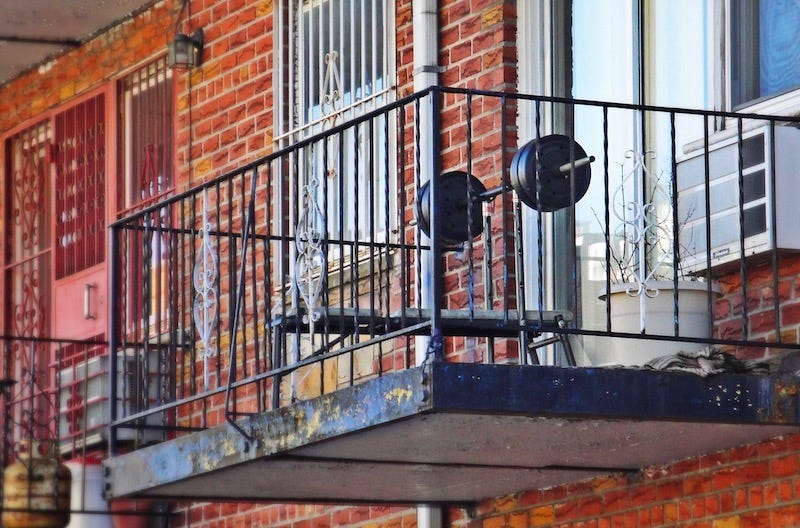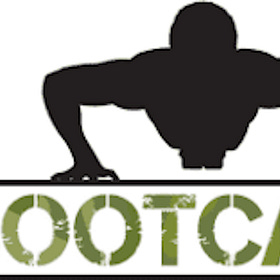What gyms can teach us about "activism"
Far too many folks imply that unless a critic expounds a specific strategy for change, their opinion is nothing more than worthless negativity. This reaction misses the essential role critical analysis plays in a society where problems and their causes are so cleverly disguised.
When discussing the future, the first step is usually an identification and demystification of the past and present.
Besides, of what value would my alleged "solutions" be while we are still in the midst of myriad global crises? I like to imagine that if we began to boldly detach ourselves from this necrophilic system, we'd create a space where we could recognize paths and options beyond our current line of sight.
That said, I have been suggesting a HUGE first step for quite some time now: Recognize how ineffective we’ve been and accept how badly we need new perspectives, voices, and ideas.
How do I know this is a good idea? I worked in the fitness industry for decades, that’s how.
I’ve spent more time in gyms than I can ever begin to calculate. Yes, this choice instilled in me some pretty skewed and unhealthy perceptions, but meaningful and affirmative life lessons were also to be learned within those mirrored walls. For example:
Lesson #1: Let the results (or lack thereof) guide you
Whether working with a client or working on myself, I was always encouraged to evaluate, experiment, and evolve regularly — based on results.
In gyms, I learned how to remain receptive to fresh approaches and ideas and to understand the need for perpetual modification and adaptation. If you’re unhappy with your outcomes, you automatically try something else. Let the results (or lack thereof) guide you.
Also, as a trainer, it was my job to point out to others what needs to be addressed. No one called me “self-righteous” for suggesting their previous attempts were flawed. When new members joined the gym and got an evaluation, they didn’t call me “negative” for identifying where changes needed to be made and work needed to be done.
I didn’t, for example, focus on how neatly their fingernails were trimmed for fear of appearing “divisive” by telling them about their tight calf muscles. Nope, we worked together to diagnose problems and to create a fluid plan for addressing these problems.
It’s long overdue we apply such a logical, results-based approach to dismantling the Parasite Class™.
Lesson #2: Use it or lose it
You may play a sport, practice a martial art, or run, run, run. Your preference might be yoga, boxing, CrossFit, Pilates, spin, or old-school weight lifting. Whatever you do to exercise and use your muscles will make them grow. And strengthen. And become more flexible. And more enduring. Use your body and it becomes more powerful.
The same is true of your courage. And your will. And your love.
Use them. Challenge them. And they will respond. They will grow. And strengthen. And become more flexible. And more enduring. Use your critical thinking and compassion muscles every day and they will become more powerful.
Lesson #3: It’s not a hobby
It’s a funny thing, working out. You might start out dreading it, even hating it. But if you stick with it, start seeing some results, and find the method that lights you up, you begin to look forward to it. You will even think about your workouts when you’re not at the gym. You’ll talk about your workouts and encourage others to get involved. And they will. Soon, they’ll be talking about their workouts even when they’re at school or work or out socializing.
It can be the same when you resist oppression. You may begin such work as a reaction or even a resolution. At first, it will be challenging. But if you stick with it, start seeing some results, and find the method that lights you up, you begin to look forward to it. You will even find yourself thinking and talking about your activism all the time.
You’ll wake each morning on a mission. You’ll go to bed each night knowing you did the work. Speaking of work…
Lesson #4: The more resistance you handle, the stronger you get
Do the work — every day
P.S. A previous gym metaphor post of mine:
Bootcamp Workouts: Bringing the War Home
When you’ve worked in gyms as long as I have, you become numb to the fitness-as-military-worship motif. For example, boot camps, civilian-military combines, Navy Seals this or that, and the ever-ubiquitous “Train Like a Soldier!”
********************************************************************
It would be deeply appreciated if you’d sign up to become a paid subscriber for less than $5 per month. It directly enables this blog/podcast to keep going and growing. You can find the link at the bottom of the post.
If you prefer, you can make a one-time donation whenever you’d like by clicking here. Thank you in advance; it really helps!







Yes, that rhetorical dodge of demanding a robust program as a precondition for accepting the validity of a critique is one of the most tedious, dishonest discursive tropes. Something very similar shows up in, e.g, addiction counselling, in which the priority really is getting off the damaging substances.
I probably needed to read this this morning. I’ve been on a fitness reset and I haven’t been to the gym for about three weeks. Which is unheard of for me. But I had to stop. The arthritis was near debilitating. And so finally, I went to the doctor. The doctor put me on an anti-inflammatory medication and has me doing a stretching regimen. And I feel like a new person. I think I’m afraid to go back to the gym because it hurt so bad. Now you speak and I have to think about it. Maybe today’s the day that I go back.